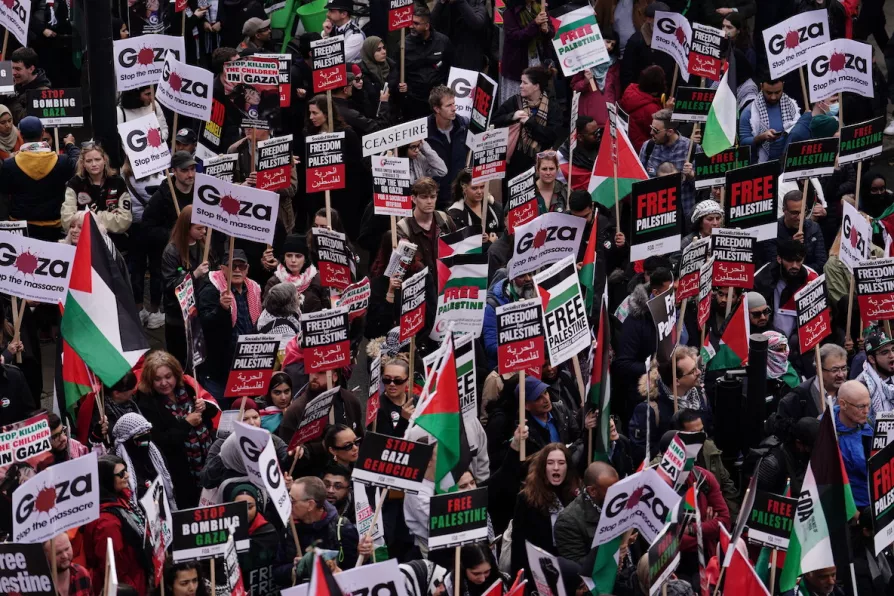As tens of thousands return to the streets for the first national Palestine march of 2026, this movement refuses to be sidelined or silenced, says PETER LEARY

 Protesters during a pro-Palestine march organised by Palestine Solidarity Campaign in central London. Picture date: Saturday October 28, 2023.
Protesters during a pro-Palestine march organised by Palestine Solidarity Campaign in central London. Picture date: Saturday October 28, 2023.
THE right to demonstrate was hard-won. It took a massacre at Peterloo in Manchester on August 16 1819, where soldiers on horseback cut down, killed and injured protesters who were demanding the right to vote, to remind that state that allowing political demonstrations was perhaps preferable to such confrontations.
It is a right that has required exercise in practice down the decades and centuries — and there have of course been times when demonstrations were banned or attacked by the police.
Since the 1960s protest marches have become a significant way of focusing on issues which official Westminster politics ignores.

It’s not just the Starmer regime: the workers of Britain have always faced legal affronts on their right to assemble and dissent, and the Labour Party especially has meddled with our freedoms from its earliest days, writes KEITH FLETT

The government cracking down on something it can’t comprehend and doesn’t want to engage with is a repeating pattern of history, says KEITH FLETT

While Hardie, MacDonald and Wilson faced down war pressure from their own Establishment, today’s leadership appears to have forgotten that opposing imperial adventures has historically defined Labour’s moral authority, writes KEITH FLETT











